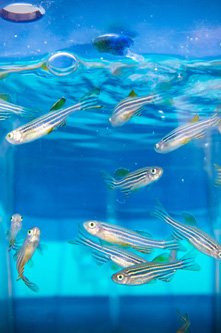
Strengthening and promoting ethics
The Institut Pasteur Ethics Committee (CEIP) encourages discussion on the societal and ethical dimensions of research and practices. It is also involved in improving implementation and coordination in the areas of ethics, professional conduct, scientific integrity and responsible research. The CEIP works with the other committees presented below to develop institutional awareness of these topics.

Reflecting on research practices
The Institut Pasteur's Research Volunteers Committee (COVOL) is a forum for reflection on research from the participants' viewpoint. It includes volunteers who have chosen to be involved in the Institut Pasteur's research, often by donating samples or data, and serves as a bridge between the institution and society. It also plays a part in improving the Institut Pasteur's practices through the involvement of participants.

Assessing ethical acceptability
For any research involving humans or animals, scientists must demonstrate compliance with applicable ethical standards and legal requirements. At the Institut Pasteur, two bodies assess the ethical dimensions of research protocols: the Committee for Ethics in Animal Experimentation (CETEA) and the Institut Pasteur Institutional Review Board (IRB-IP).

Observing standards of professional conduct and scientific integrity
Guaranteeing the scientific integrity, compliance and impartiality of research is crucial, especially at a time when scientific methods and findings are coming under increasing public scrutiny. At the Institut Pasteur, the Research Integrity Officer (RIS) works with the Committee for Research Integrity and Conciliation (CISC) and the Ethics and Compliance Committee (CDC) to oversee compliance with these principles.

Monitoring sensitive situations and providing support
Some situations require closer monitoring, either when requested by a funder or because they represent a specific risk (for example a health or environmental risk or a conflict of interest). In these cases, the Institut Pasteur supports the teams concerned via two permanent operational groups: the Dual Use Liaison Group (DULG) and the Conflict of Interest Review Board (GELI). An ad hoc committee – the Ethics Board for European Contracts (EBEC) – can also be called upon for projects involving human subjects funded by the European Research Council.


